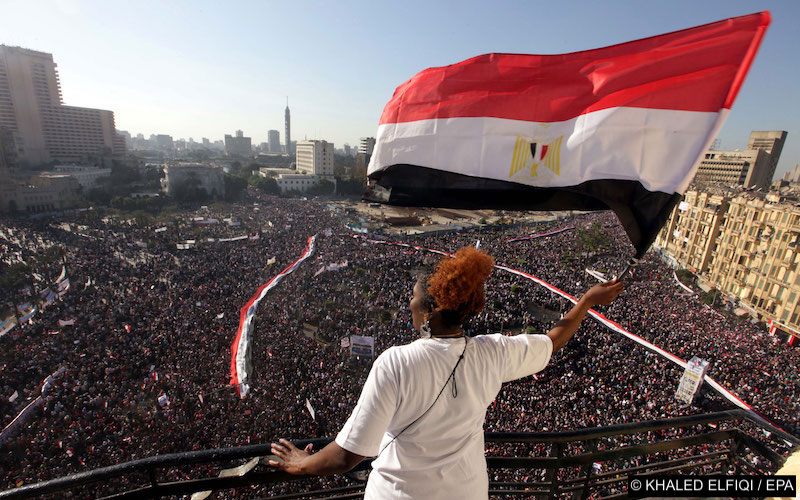Egyptian Revolution
Episode #10 of the course Revolutions that changed the world by James Wareing
Today, we reach our final revolution and our first journey into African politics and society. The Egyptian Revolution is an apt one in this respect, as it represented not only the social changes in Egypt but also across the Arab world. It is the most recent of our revolutions, and as you would expect, it still has repercussions that are felt today.
What Caused the Revolution?
It must be viewed in both the context of the native Egyptians themselves and the Arab World as a whole. The Arab World had become accustomed to despotic rule, governance that was rife with corruption. The end of 2010 saw the people rise up against the oppression, starting in Tunisia, where a young man set fire to himself in protest against officials barring him from selling his produce. This prompted protests not only across Tunisia but also throughout the Arab World. It was in Tunisia where reform was most apparent, with the president fleeing and democratic elections being held. It is against this backdrop that the Egyptian Revolution should be viewed.
Main Events
On January 25th, 90,000 people began their “Day of Rage,” the organization of which had been enhanced by social media, in particular, Facebook. The rage was directed at the president, Hosni Mubarak, who had been ruling for the last 30 years. The police responded with tear gas and violence in an unsuccessful attempt to get the protesters to disperse. By January 28th, the protesters had been on the streets for four days, leaving the police to retreat and be replaced by the army.
In an attempt to quell the protest, the internet was turned off, but the protesters are not deterred, despite the death of eleven civilians. Mubarak’s response was to sack his cabinet but to remain in power himself, a move that did nothing to ease the concerns of the protesters. By the end of January, the EU and the USA had called for elections to be held, as concern arose around the world for the plight of the Egyptian people.
On February 11th, the multiple concessions already offered by Mubarak had still fallen on deaf ears. He subsequently announced on state television that he was stepping down, leading the military to take over. While the protests were well-organized on social media to provide a high turnout, the protesters lacked political organization, with no plan for a transition. Protesters flooded to Tahrir Square in Cairo to celebrate their newfound freedom, while the military resolved to dissolve the Parliament and suspend the Egyptian constitution.
What Happened Next?
Elections followed, which saw Mohammed Morsi elected as president. Morsi’s governance was to see a return to old habits, as he abolished limitations on his power, and this led to more protests. Once more, the military had to step in, and the coup led to the disposition of Morsi amidst much violence that was internationally condemned. In late May 2014, an election was held in which Abdel Fattah el-Sisi won an improbable 97% of the vote. Despite representing itself as a democracy, Egypt still appears to be an autocracy in all but name, with Sisi winning another controversial election in 2018. In Egypt, it appears that the more things change, the more things stay the same. Indeed, this seems to be indicative of the outcome of the revolution across the Arab world. The royal families in countries such as Morocco, Saudi Arabia, Qatar, and Bahrain have all remained in power, with Tunisia providing the only apparent success story of the movement.
How Is It Viewed Today?
The revolution is still fresh in memory, and the following decades will no doubt give us a more accurate gauge on the impact of the revolution. However, it is possible to discern certain sentiments of how it is viewed in Egypt today. Despite the initial optimism of reform, there is anger that the revolution and its ideals were stolen by the generals and that they are still locked in a similarly repressive regime.
At the start of the course, I outlined the enduring impact of revolutions. What is also clear is their ability to change society and the necessity of revolutions to provide that catalyst. However, despite their power, we have seen that their impact is not always assured, and just as important as the messages of the revolutions are how they are managed and communicated afterward. For all these reasons, I hope I have managed to demonstrate revolutions’ fascinating and consistent ability to inspire.
Recommended book
Homo Deus: A Brief History of Tomorrow by Yuval Noah Harari
Share with friends

